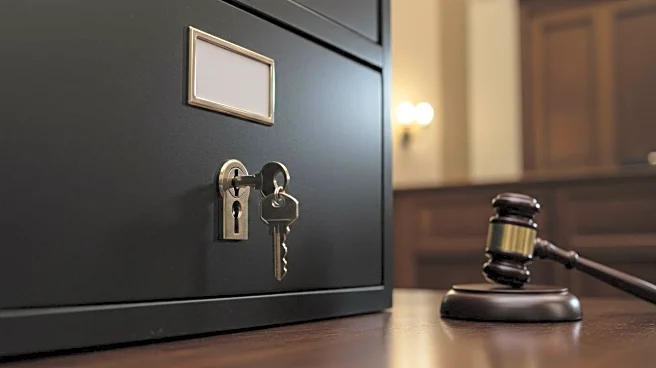What's Happening?
The House Oversight Committee is set to receive hundreds of documents from the Justice Department related to the investigation of Jeffrey Epstein. This marks the first batch of files sent in response to a congressional subpoena issued earlier this month. The subpoena demands records from the DOJ's probe into Epstein and his associate Ghislaine Maxwell. Oversight Committee Chairman James Comer has indicated that some of these files will be made public. The committee's actions are part of a broader effort by congressional Republicans to increase transparency, although there are concerns about the potential exposure of sensitive details regarding the government's handling of the Epstein case and President Trump's past connections with Epstein.
Why It's Important?
The release of these documents could have significant implications for U.S. politics and public trust in government institutions. The files may reveal new information about the Epstein investigation, potentially impacting public perception of how the case was handled. For Republicans, this move aligns with their commitment to transparency, but it also risks uncovering uncomfortable truths about past administrations and high-profile individuals. The handling of these documents could influence public opinion and political dynamics, especially if they contain revelations about influential figures.
What's Next?
The Justice Department will review the documents for redactions before they are released. The committee will also conduct its own review. There is ongoing debate about the comprehensiveness of the release, with some critics arguing that the process may be controlled to limit public access. Additionally, Rep. Thomas Massie plans to push for a House vote to release more Epstein records, indicating that the issue will continue to be a point of contention in Congress.









